June 7, 2018
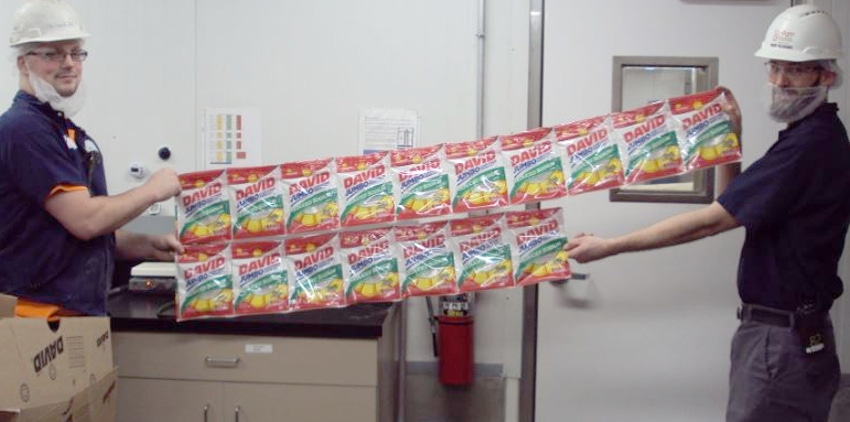
One of the best strategies to improve packaging operations is to solicit ideas from the people who are on the plant floor, actually dealing with the machines and packaging materials. And contests are a great way to incentivize employees to come across with ideas. Here are three recent examples of how Conagra Brands cut waste, improved packaging line operations and saved money.
Conagra Brands established its Sustainable Development Awards in 2009. Employees are asked to submit innovations or projects that reduce water, waste, energy and costs across the company’s numerous business channels. So far, the projects developed for the contest have decreased Conagra Brands’ carbon footprint by more than 189,000 metric tons, conserved 3.5 billion gallons of water, diverted more than 207,500 tons of solid waste from landfills, reduced solid waste by nearly 98,000 tons and decreased packaging by 32,000 tons. Award winners receive a $5,000 grant from the Conagra Brands Foundation for use in their community on sustainability-focused public service projects.
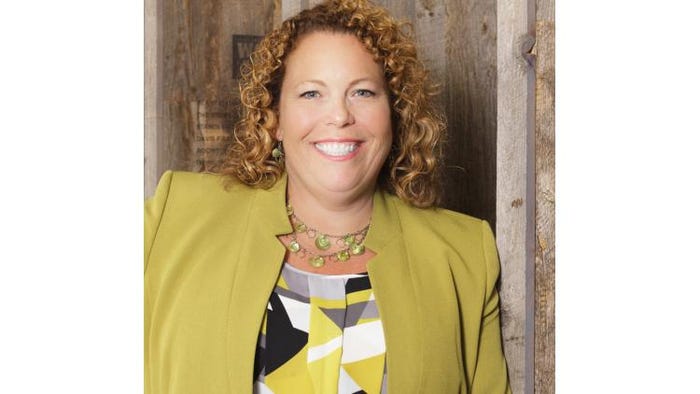
Gail Tavill, Conagra’s vp of sustainable development, talks with Packaging Digest about how three of this year’s Sustainable Development Awards pertained to packaging.
How many entries does Conagra Brands typically get per year for this contest?
Tavill: This year we received 57 entries, which is consistent with the last three years of the program.
How are winners chosen?
Tavill: Winners are chosen by a review committee made up of a cross-functional leadership team. Leaders from our grocery and snacks business, health and safety, procurement, communications, supply chain and R&D functions are all part of review process.
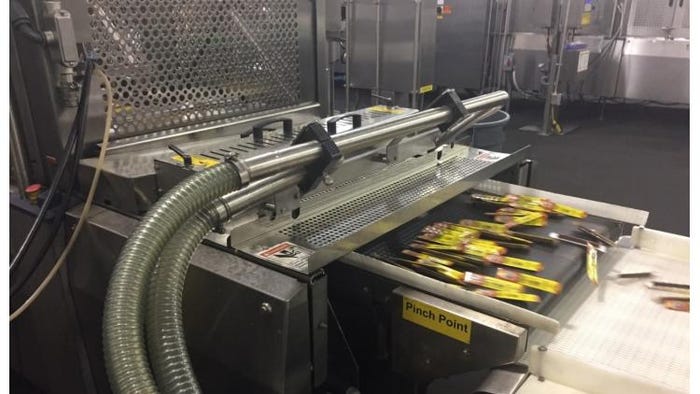
New cutting assembly in use in Troy, OH, plant.
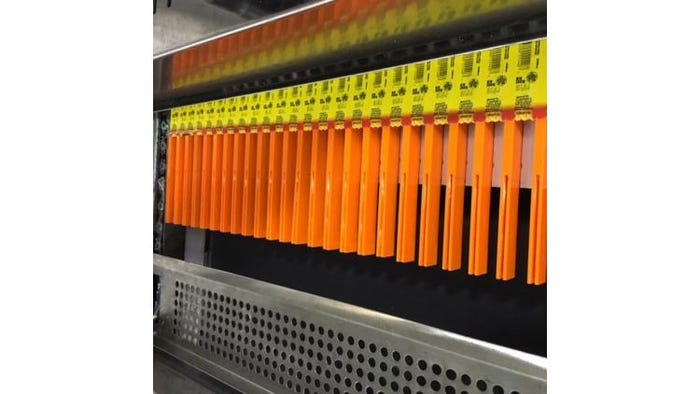
New cutting assembly from Troy, OH, plant.
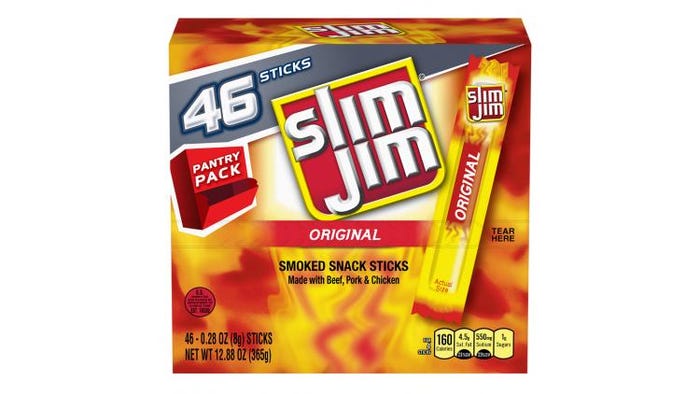
Can you give details of how the Slim Jim operation in Troy, Ohio, eliminated more than 500 tons of waste annually? What modifications did they make, to which equipment?
Tavill: After realizing a significant amount of time and money went into replacement parts for a cutting assembly, our Slim Jim facility in Troy, Ohio, modified equipment to allow for a quicker and less expensive repair option. Rather than replacing a whole assembly, the plant created a modular design that was more robust and allowed for replacing small sections at a time, which was both faster and more efficient. The improvement helped reduce unplanned stops and film waste, eliminating over 500 tons of waste annually.
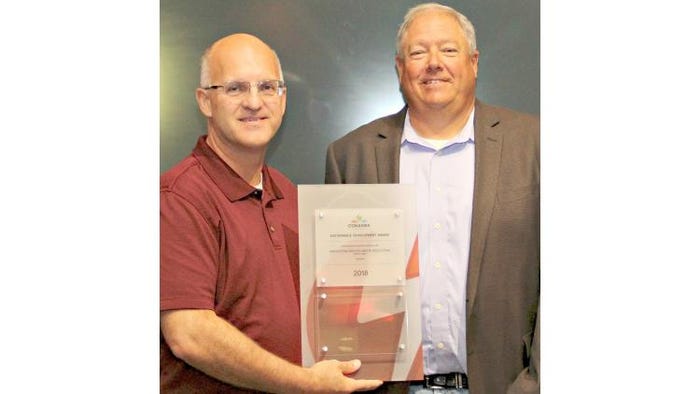
Winner from the Troy, OH, team: Jeff Erwin, Troy plant manager; Mike Tracy*, supply chain svp
* Conagra Supply Chain executive, not on winning team
NEXT: The David Seeds operation in Waterloo, Iowa, saved 225,000 bags of seeds a year (see photo at top of this page)
***************************************************************************************
Production efficiencies, ecommerce challenges, sustainability trends, new bioplastic technologies and more are among the topics on the agenda at the new Packaging Education Hub at EastPack 2018 (June 12-14; NYC). This free educational program will have more than 15 hours of can’t-miss presentations, demonstrations and hands-on activities. Register to attend for free today!
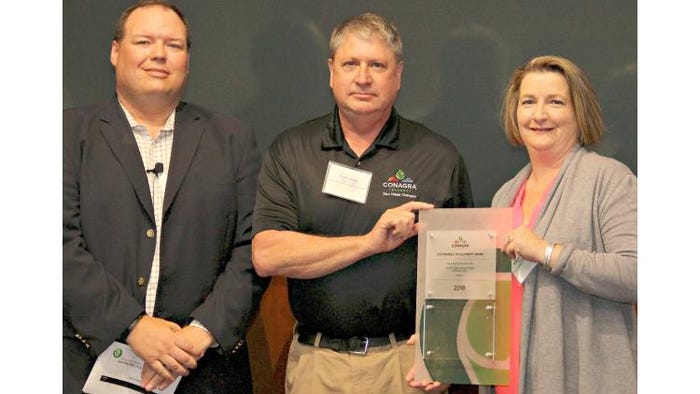
Winners from the Waterloo, IA, team: Craig Weiss*, vp supply chain; Tom Jeys, environmental health and safety manager; Ellyn Perkins, environmental health and safety specialist
* Conagra Supply Chain executive, not on winning team
Can you give details of how the David Seeds operation in Waterloo, Iowa, saved 225,000 bags of seeds a year? Why do bags have to be purged during startup, and how was the team able to reduce the number of bags purged?
Tavill: To preserve freshness of our David Seeds, the headspace in the individual bags are nitrogen-flushed. At each startup cycle, achieving the correct residual oxygen level required the plant to purge 10 bags. After observing the volume of waste generated by that practice, the team questioned if the current standard was necessary. Working with the quality team, they were able to identify that optimal nitrogen values were reached after purging only seven bags. This change saved 225,000 bags of sunflower seeds.
NEXT: Filler adjustment in Milton, Pa., cuts 1,150 tons of wasted sauce
***************************************************************************************
Production efficiencies, ecommerce challenges, sustainability trends, new bioplastic technologies and more are among the topics on the agenda at the new Packaging Education Hub at EastPack 2018 (June 12-14; NYC). This free educational program will have more than 15 hours of can’t-miss presentations, demonstrations and hands-on activities. Register to attend for free today!
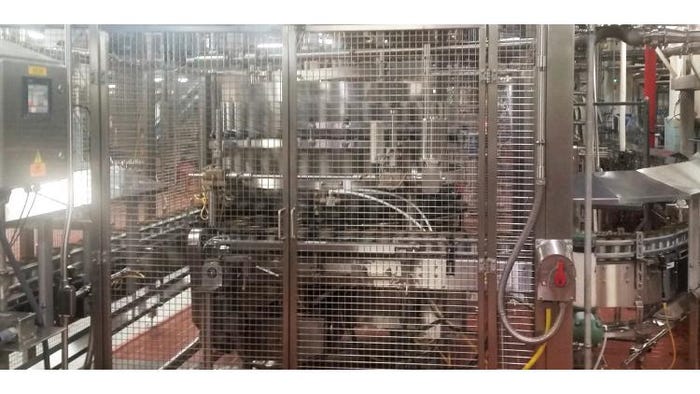
New sauce filler on Line 2 at Milton, PA, plant.
Can you give details of how the operation in Milton, Pa., achieved a 2% yield improvement while reducing 1,150 tons of wasted sauce per year? Was this due to some adjustment in the filler?
Tavill: A low-viscosity sauce was creating high-yield loss in our Milton, Pa., plant when small amounts of sauce would spill while going through a waterfall briner before the can was sealed. By creating a thicker sauce and using the waterfall briner to add a thin layer of water across the sauce, the team was able to create a barrier to keep the sauce in place. This “topping water” mixes in with the concentrated sauce during thermal processing, thus not changing the overall product design. After the first month of operation, the yield improvement has been tracking at 2% with an annual yield improvement projected at $350,000.
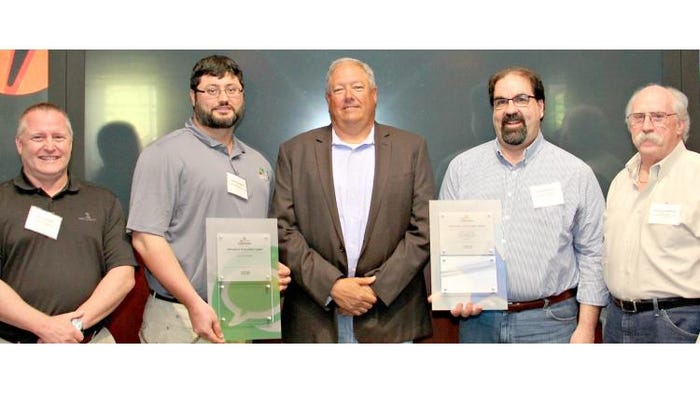
Winners from the Milton, PA team: Paul Rearick, Production Manager; Jeff Dodson, Production Team Leader; Mike Tracy*; Karl Henschel, Engineering Project Manager; Dana Lockwood, Env. Health & Safety Manager
* Conagra Supply Chain executives, not on winning teams
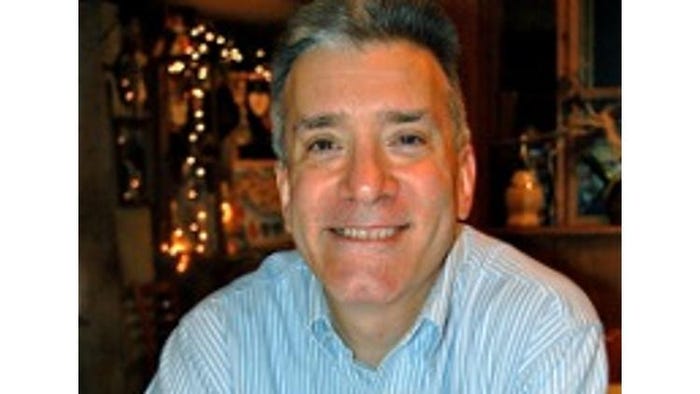
Freelancer Pan Demetrakakes began his trade publishing career in 1992 by covering packaging, which he has done for several publications over the years. Other areas of coverage in his career include the food supply chain from production through retailing, as well as specialty coffee retailing, gift and housewares retailing, and electrical equipment.
***************************************************************************************
Production efficiencies, ecommerce challenges, sustainability trends, new bioplastic technologies and more are among the topics on the agenda at the new Packaging Education Hub at EastPack 2018 (June 12-14; NYC). This free educational program will have more than 15 hours of can’t-miss presentations, demonstrations and hands-on activities. Register to attend for free today!
About the Author(s)
You May Also Like


